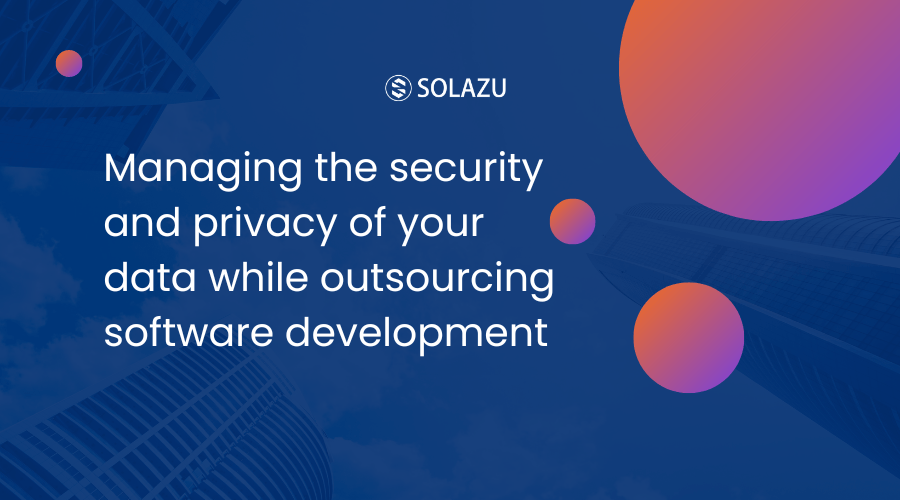In today’s world, outsourcing software development has become a popular option for businesses. Outsourcing software development has a number of advantages, including reducing costs, increasing efficiency, and accessing specialized expertise. However, outsourcing software development also brings with it a number of security and privacy risks that must be managed. In this article, we will discuss the steps businesses can take to manage the security and privacy of their data while outsourcing software development.
Understand the Risks
The first step in managing the security and privacy of your data while outsourcing software development is to understand the risks involved. When outsourcing software development, you are entrusting a third-party with access to sensitive data and systems. This can create a number of potential risks, including data breaches, intellectual property theft, and other forms of cybercrime. Understanding these risks is the first step in managing them effectively.
Choose the Right Partner
One of the most important steps in managing the security and privacy of your data while outsourcing software development is to choose the right partner. It is important to work with a partner that has a strong track record in security and privacy, and that has the necessary certifications and experience to manage these risks. In addition, it is important to work with a partner that understands the specific security and privacy needs of your business and can tailor their services accordingly.
Establish Clear Requirements and Expectations
Once you have chosen a partner, it is important to establish clear requirements and expectations for security and privacy. This should include specific technical requirements, such as encryption and access controls, as well as procedural requirements, such as incident reporting and security audits. By establishing clear requirements and expectations, you can ensure that your partner is taking the necessary steps to manage the security and privacy of your data.
Implement Robust Access Controls
Implementing robust access controls is another key step in managing the security and privacy of your data while outsourcing software development. This involves controlling who has access to your data and systems, and ensuring that access is limited to those who need it. This can include implementing multi-factor authentication, role-based access controls, and other security measures that limit the ability of attackers to access sensitive data and systems.
Implement Monitoring and Auditing
Monitoring and auditing are also important steps in managing the security and privacy of your data while outsourcing software development. This involves implementing systems that monitor for suspicious activity and log all activity on your systems. This can include monitoring for unusual patterns of activity, such as attempts to access sensitive data outside of normal business hours, as well as auditing all access to sensitive systems and data.
Plan for Incident Response
Despite your best efforts, there is always a risk of a security incident or data breach when outsourcing software development. It is important to plan for incident response in advance, so that you can respond quickly and effectively in the event of a security incident. This should include establishing clear procedures for incident response, as well as training your staff on these procedures.
Conclusion
Outsourcing software development can bring a number of benefits to businesses, but it also creates security and privacy risks that must be managed. By understanding these risks, choosing the right partner, establishing clear requirements and expectations, implementing robust access controls, monitoring and auditing, and planning for incident response, businesses can effectively manage the security and privacy of their data while outsourcing software development. By taking these steps, businesses can enjoy the benefits of outsourcing software development without putting their sensitive data and systems at risk.
